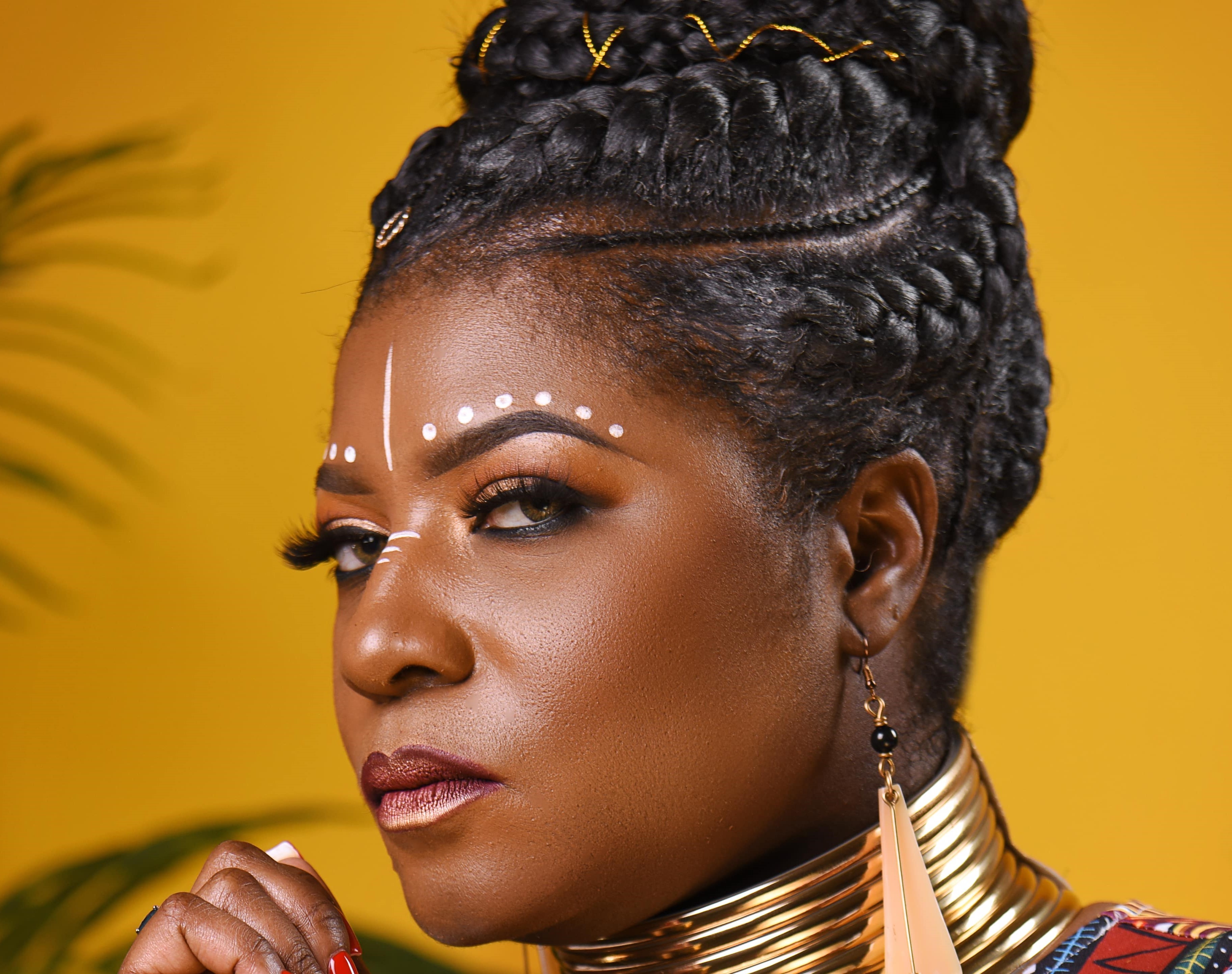“Who Said You Can Touch My Hair!”
Beauty, Book Reviews, Business and Lifestyle, Entertainment, Style — By Buddy Sampson on May 11, 2022 at 5:18 pm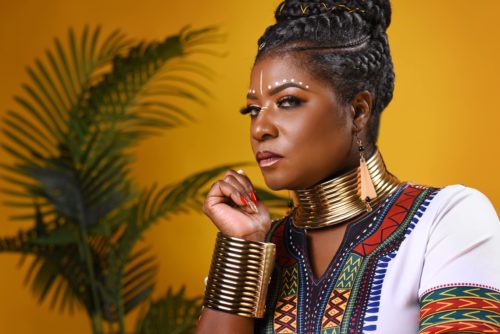
Cover and Inside Photo: Author Dr. Tamecca S. Rogers. Her book, “Who Said You Can Touch My Hair” is available on Amazon.
The book, by Dr. Tamecca S. Rogers explores Issues of Hair and Black women
By Buddy Sampson
Hair, specifically Black hair has been a subject of wonder and controversy since the birth of slavery. The issue of hair has been a hotbed of controversy in the Black community, with cultures outside of the Black community having a fascination with Black hair, even so much to imitate Black culture, with braids, corn rows and other methods of hair treatments and styles, all in homage to Black culture. However, that fascination with Black hair has often caused trauma to people of color, especially Black women.
Dr. Tamecca S. Rogers has written a book, “Who Said You Can Touch My Hair,” a book made for children that’s not only educational for children, “but it teaches grown people how to act as well,” explains author Dr. Tamecca S. Rogers, who holds a prominent position at Tulsa Technology Center. “My title is Director of Diversity, Equity and Inclusion and people ask what I do, “said Dr. Tamecca S. Rogers who holds a Bachelor of Arts in Psychology, a Master’s degree in Business Administration, and a Doctoral degree in Educational Leadership. “In short I say, ‘tell people to be nice.’ It’s just insane to me that we have to teach stuff that you teach your kindergartener before they go to school, ‘don’t touch people.’ That worries me that people feel so privileged to get in your space and kind of grab on you.”
Dr. Rogers also penned a critical acclaimed book, “A Promise Deferred: The Massacre of Black Wall Street,” a children’s book inspired by her relationship with her son, Keith Ross, which attempted to reconcile the horrors of the massacre of thousands of innocent people and the destruction of thriving Black businesses in Tulsa, Oklahoma in 1921. But in writing her latest book, Dr. Rogers sought out to educate others on why you should never touch another’s hair, especially a Black Woman.”
The book, “Who Said You Can Touch My Hair” co-written by Keith Ross and London Love, was inspired, dedicated to and based on an incident that she had with a friend, Lara Skaggs Morris.
In 2012, Tamecca and Lara attended a Technology Center Leadership Administrator program together. “By that time, I had already known Lara for eight years,” said Dr. Tamecca S. Rogers. “We often talked, laughed, and even cried together.” During a break, Lara reached out to touch her hair. “I reacted by grabbing her hand and saying, ‘Excuse me, ma’am, what are you doing? You are never supposed to touch a Black woman’s hair!’” She looked shocked and said, “Tamecca, your hair is so pretty. I wish my hair could do something like that. I just need to know how it feels.”
Just think of the implications, it’s not particularly normal to touch hair. It can be considered assault. However, that assault, that affront is committed on Black women and Black girls across the globe.
Daily.
“It is an invasive and a micro-aggressive behavior to ask an employee (or friend or co-worker) if you can touch their hair,” said Janice Gassam Asare, a Senior Contributor for Diversity, Equity and Inclusion for Forbes Magazine in a recent article for the publication. “The only thing more offensive is assuming that it’s okay to touch a person’s hair and proceeding to touch it without getting permission.” Add in being bullied as a person of color and childhood trauma, and you have a recipe for disaster.
After the incident, although at the time, Lara was completely unaware and didn’t find out until much later, during a dedication, Dr. Rogers pointed out to Lara the horrors she faced as a child, memories of grade school. “At that point, all of my grade and middle school moments came rushing back to me,” said Dr. Rogers, reflecting on a turbulent childhood. Although she didn’t make Lara aware of it, it reprised the trauma she experienced. “I was teased and made fun of because of my hair. Kids touched my hair for a dare, then ran back to tell their friends how it felt. One boy even attempted to set my hair on fire by throwing a book of lit matches in my coat hood.”
Society, as a whole, has had a short attention span, with lapses of societal norms seemingly evaporating at a rapid pace. Mores are deteriorating, including basic human decency, including a tenet that you should never touch a stranger’s hair, which actually is considered battery, touching someone without their consent. The book hopes to educate, not only the Black community but the white community as well. “Respect boundaries,” said Dr. Rogers when asked what she hopes other cultures, including whites could learn from her book. “We are people, and when you touch our hair, it feels like you’re not treating us as if we are people. And the reason I wrote it for kids is because sometimes they don’t have a voice or know how to articulate that.” In an article Dr. Rogers wrote for Tulsa Kids, she expresses the sentiment that most Black women feel when someone touches their hair, which can be especially impactful to children.

Dr. Tamecca S. Rogers (center) with L-R) Racquelle Verner, Kerrington Verner, Tatyiana Verner, her son Keith Ross, and Legend Gray.
“While friends, colleagues and peers may not mean any harm,” said Dr. Rogers in the Tulsa Kids article, “Black people’s feelings matter. It doesn’t matter what the intent is if it negatively affects a person. Often, this problem is described as an adult-only one. However, Black children share these experiences (and feelings) when other kids or adults touch their hair. For this reason, it’s important to educate everyone about respecting personal boundaries.”
For the incident, involving Dr. Rogers and Lara however, because of the friendship between Tamecca and Lara, it didn’t escalate to anything further. “I had to educate her about why it was not OK to touch my hair and she respected my wishes,” said Dr. Tamecca S. Rogers referring to her previous childhood trauma. “Of course, she had no idea what I had been through, these are things we tend to bury and forget about. But unfortunately, the memory is still there. The fact is, getting in anyone’s personal space without their permission is a violation.”
After serving five years as a hospital corpsman in the United States Navy and a combined six years as a high school instructor and college enrollment counselor, Dr. Rogers held adjunct professor positions at multiple postsecondary institutions before working at Tulsa Technology Center.
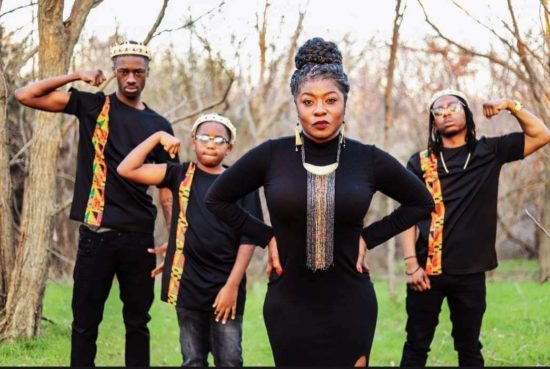
Dr. Tamecca S. Rogers pictured with her sons Chazen, Keith Ross, who co-authored the book and Ian, her oldest son.
The mother of three children, Dr. Rogers enjoys writing children’s books with her youngest son, Keith Ross. To date, she has published several successful parenting and educational articles, as well as best-selling, award-winning children’s books. Her work has been featured on CBS News during an interview with Tanya Rivero and KJRH News during an interview with Julie Chin. She also co-authored Women Motivated by Purpose and founded Mominate (Mom +Dominate = Mominate), a non-profit organization aimed to help financially challenged mothers and their children. In addition to helping to build confidence in children through her children’s books, she aspires to inspire self-confidence to women, motivating them to live up to their highest potential. Her future plans include using the profits from her books to assist recovering mothers in Tulsa and help build an elementary school in Mombasa, Kenya.
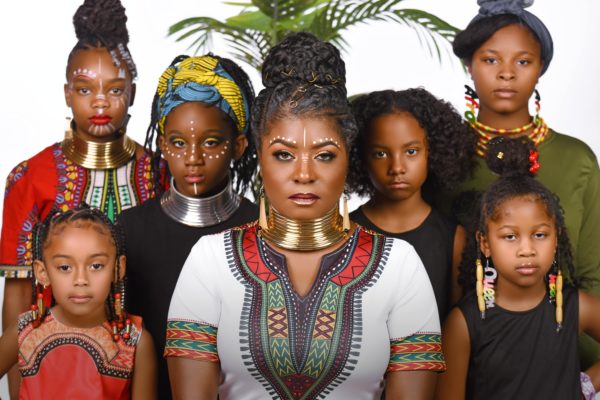
Dr. Tamecca S. Rogers with Jocelynn D’ Elyanna and Kerrington Verner. Second row: Nina Matias, Tedaiya Ford, Ryan Grace Reed, and Tatyiana Verner.
To date, Dr. Tamecca Rogers and Lara Skaggs Morris share a deep friendship, a friendship, she hopes that serves as a teaching moment for society to follow- it’s never appropriate to touch anyone’s hair without permission and extremely in poor taste to even ask. “She meant well and is the sweetest, strongest, loving woman I know,” said Dr. Rogers about her friend Lara. “So, I have learned we have to give each other grace. To this day, with her curiosity, Lara still wants to touch, but she knows not to, and I thank her for resisting her urges.”
Everyone can learn to resist the impulse to touch someone’s hair, especially the hair of women of color. The reconstruction of societal norms is paramount. “Who Said You Can Touch My Hair” presents a moment of clarity that all of human society should follow, especially adults. “What a boring world it would be if everyone were the same,” said Dr. Tamecca Rogers. “We have more in common than we do have differences, but we do have differences and we need to embrace those differences, respect boundaries and learn those differences.”
Dr. Tamecca S. Rogers’ “Who Said You Can Touch My Hair” is available on Amazon. Here is the link: https://www.amazon.com/Who-Said-You-Touch-Hair-ebook/dp/B09Y4P1HVW/ref
Her article on the Tulsa Kids website:
To learn more about Dr. Rogers please visit www.inspirepublishingllc.com and www.mominate.org.
News Source:
Tags: Black Hair, Buddy Sampson, Hair, Tamecca S. Rogers, Who Said You Can Touch Our Hair



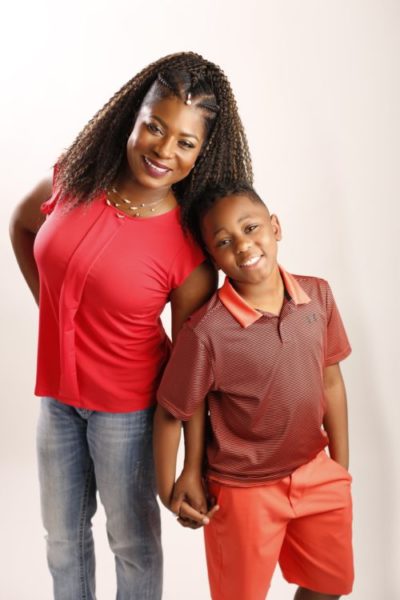
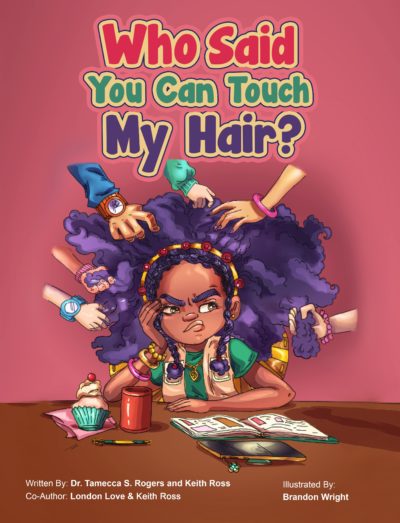
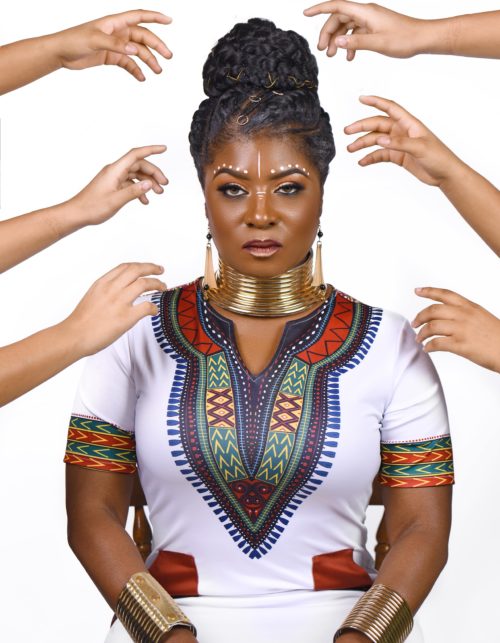
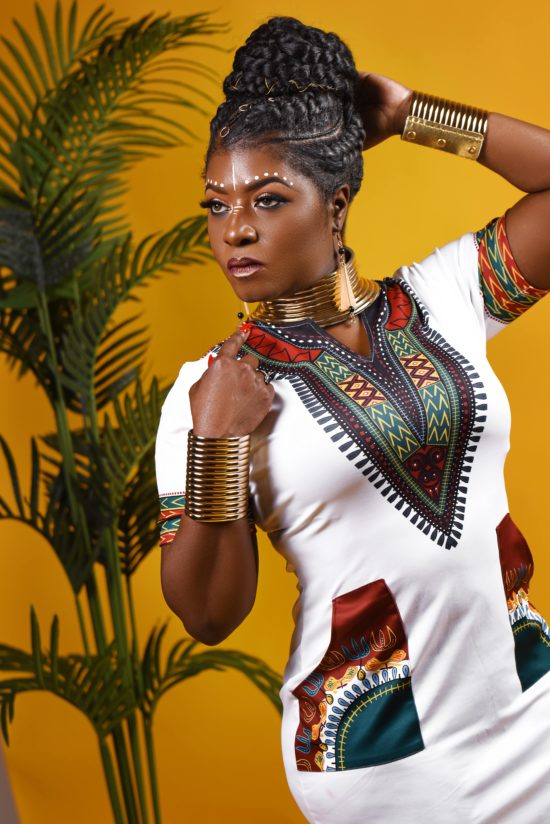
 Tweet This
Tweet This Digg This
Digg This Save to delicious
Save to delicious Stumble it
Stumble it